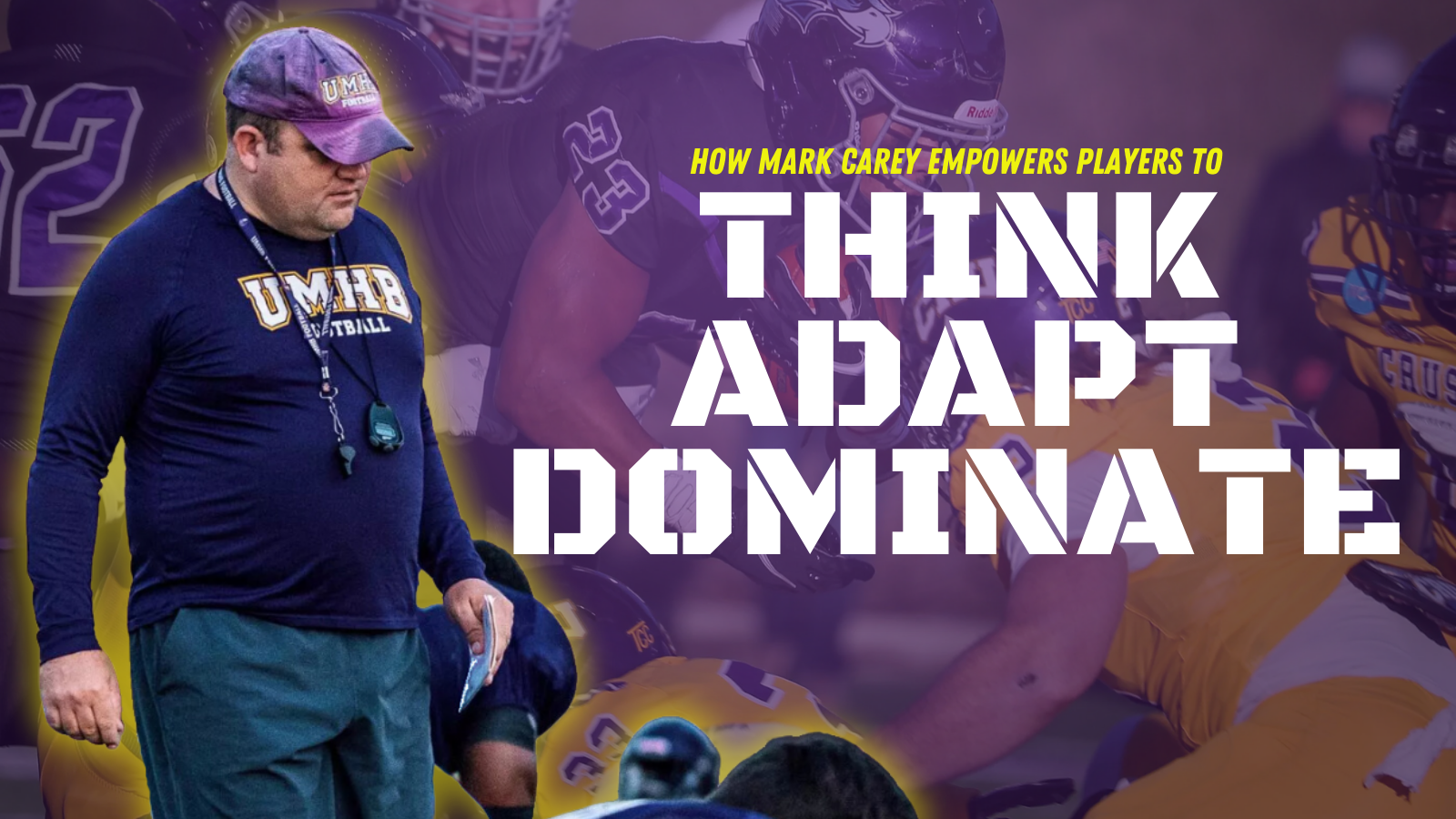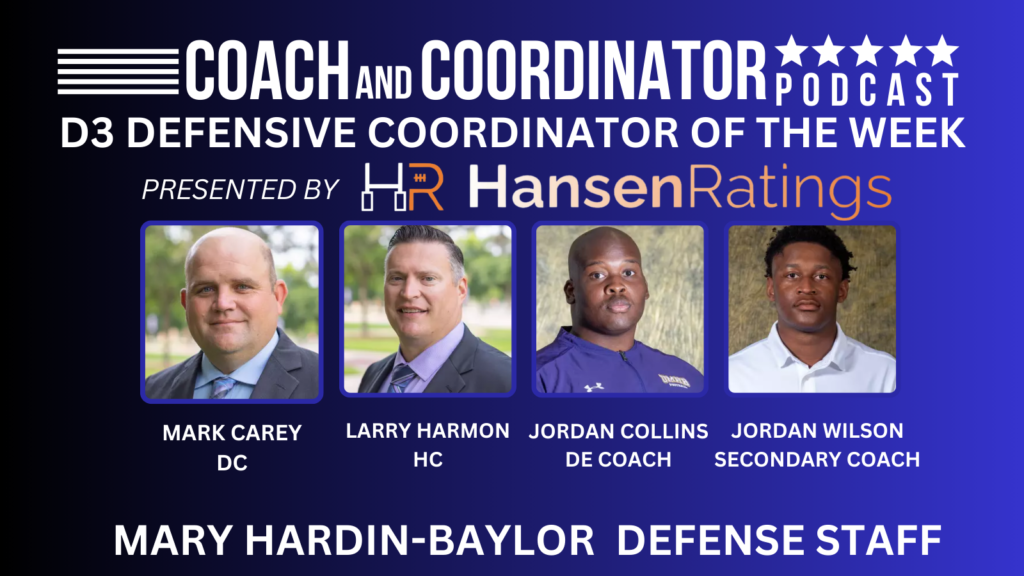
Mark Carey, the Defensive Coordinator at Mary Hardin-Baylor, equips his players with a blend of education, trust, and accountability. His approach goes beyond typical coaching methods by instilling independence, adaptability, and ownership, resulting in a defense that is fast, aggressive, and intelligent. Here’s how Carey develops such a dynamic unit.
Teaching Fundamentals and Encouraging Decision-Making
Carey prioritizes educating his players not only on defensive techniques but also on the game as a whole. He explains, “We really try to educate our players, number one on defensive fundamentals of their position and then how offenses can attack you.” He emphasizes the need to understand offensive strategies, acknowledging that offensive coaches aim to exploit weaknesses. By preparing his defense to anticipate counters, Carey ensures they stay one step ahead.
For instance, he teaches defensive linemen to read the alignment and body language of offensive linemen. When a guard’s stance shifts to set up a trap, Carey’s players know how to adjust instantly, filling gaps before they open. This kind of awareness transforms split-second adjustments into winning execution.
Building a Toolbox for Situational Play
Empowering real-time adjustments is central to Carey’s coaching. He creates a “toolbox” filled with tactics that players can use depending on the scenario. “We try to really build our guys’ toolbox… what tools you have situationally through every position to be able to see what an offense is doing to attack you and give you the best chance to be a productive player,” Carey shares.
For example, linebackers receive specific calls to communicate with the defensive line when they notice the offense spreading out horizontally. These cues allow them to seal gaps or adjust their alignment on the fly, preventing offensive formations from outflanking them or taking away favorable angles.
Learning Through Experience
Carey encourages his players to learn through both success and failure. “If you haven’t put them in those situations enough and let them sometimes fail and learn from it, that’s what it takes,” he says. This hands-on learning builds confidence and accelerates decision-making. He designs practice scenarios that mirror game-day conditions, even if it means challenging younger players with tough situations.
For example, Carey trains defensive linemen to identify cues like down blocks or kick-outs during practice. This prepares them to react instinctively during a game, leading to key stops and tackles for loss. This method enables players to make the right moves without hesitation.
Creating a Culture of Ownership and Team Chemistry
Carey’s veteran players often assume mentorship roles, which makes the coaching process more fluid. “When you get guys to start seeing it, the coaching gets a lot easier. When you’ve got great players and they’re seeing the game… they’re making those in-game adjustments,” Carey notes.
This sense of ownership extends to the scout team, where veterans guide younger players. Carey describes how an All-American defensive lineman might coach a scout team offensive lineman, saying, “Hey, this is how I need it to look because this is how it’s going to look.” Such interactions build accountability and camaraderie, creating a cohesive unit that performs seamlessly on game day. The younger players understand how important their role is in preparation.
Building Confidence for Fast Play
Carey’s defensive philosophy centers on speed and aggression. “Our job as coaches is to make sure our guys go out there and play with reckless abandon on every snap. And if they’re confused, they can’t do that,” he emphasizes. By giving players the knowledge and tools they need, Carey enables them to act quickly and decisively without second-guessing.
He trains linebackers to handle multiple responsibilities in RPO (Run-Pass Option) situations. They learn to shift from covering a B gap to dropping into a curl-flat zone instantly, without needing sideline guidance. This adaptability is critical in defending fast-paced offenses. There’s simply not enought time to get instruction from the sideline. Players need the knowledge to adjust it themselves.
Rewarding Effort and Building Buy-In
Carey values the contribution of every player, particularly those on the scout team who help prepare the starters. “When they hear an All-American defensive lineman or linebacker saying, ‘Hey, this is how I need it to look,’… it really buys into the chemistry part of your football team,” he points out. This recognition not only strengthens team chemistry but also drives younger players to push harder.
Veteran players step up, correcting scout team members to ensure they replicate exact looks needed for game preparation. This attention to detail results in a team that’s ready for any challenge, and creates unity and a shared mission that transcends individual roles.
Success Feeds Success
Mark Carey’s coaching philosophy at Mary Hardin-Baylor extends beyond the playbook. He empowers players with knowledge, facilitates independent decision-making, and nurtures a culture of accountability. “Once you get those guys seeing it and really coached up on it, man, they just continue to excel, and then they just get more hungry because they feel the success from it,” Carey explains. This approach has built a consistently successful program, producing a defense that is smart, fast, and unified in purpose.
D3 Defensive Coordinator of the Week
Mark Carey was recognized as the Coach and Coordinator D3 Coach of the Week presented by Hansen Ratings for their 41-0 win over Howard Payne on October 19, 2024. Larry Harmon is the head coach at UMHB and the defensive assistants are Jordan Collins and Jordan Wilson.
Notable Stats
Mark Carey | Mary Hardin-Baylor | 41-0 vs. Howard Payne
- Less than 200 yards allowed on 3.3 yards per play
- Forced three turnovers w/ one return TD
- One-third down conversion allowed all game
- Eight TFLs and 4 PBUs
- Opened the game with five 3 & outs on the first five drives



